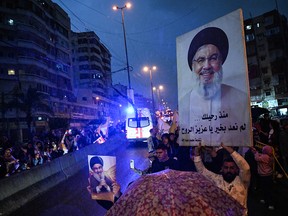Science
Harvard Study Links Diaspora Jewish Trauma to ‘Invalidation’

Diaspora Jews are experiencing significant psychological distress, termed “traumatic invalidation,” following the events of October 7, 2023. This condition has been identified in a research paper by Dr. Miri Bar-Halpern and Jackie Wolfman, clinical psychologists affiliated with Harvard University. Their study highlights the emotional challenges faced by Jewish communities outside Israel, particularly in the aftermath of heightened antisemitic sentiments and public hostility.
The research, published in The Journal of Human Behavior in the Social Environment in May 2025, outlines symptoms including anxiety, depression, shame, and, in severe cases, post-traumatic stress disorder (PTSD). Dr. Bar-Halpern noted that many Jewish individuals feel their pain has been overlooked or outright denied, contributing to a sense of isolation and distress.
Since the onset of the conflict, Jews in the diaspora have encountered a barrage of negative experiences such as public hostility, ridicule, and exclusion from social and professional circles. These incidents have included the removal of posters depicting Israeli hostages and derogatory chants directed at Jewish individuals in various public spaces. Such events have left many questioning their safety and acceptance in their own communities, as chronicled by Dr. Bar-Halpern during a recent speaking tour in Toronto, organized by a coalition of Canadian synagogues and Jewish organizations.
Understanding Traumatic Invalidation
The term “traumatic invalidation” originates from studies examining the experiences of victims of trauma, such as survivors of sexual assault, whose feelings of distress are often minimized or dismissed. Dr. Bar-Halpern and Wolfman argue that this concept is applicable to the Jewish experience, particularly in the current socio-political climate, where expressions of Jewish identity can provoke backlash.
Dr. Bar-Halpern described her personal motivations for exploring this topic, citing her own background as an Israeli immigrant and third-generation Holocaust survivor. The emotional fallout from October 7 deeply affected her, and she was compelled to document the shared experiences of her patients and the broader Jewish community. Many have reported feeling unsafe in spaces that used to be supportive, with instances of Jewish identities being marginalized or outright attacked.
The study’s authors emphasize the importance of validating Jewish pain and trauma, arguing that societal denial exacerbates the psychological impact. Dr. Bar-Halpern noted that diasporic Jews often feel compelled to hide their identities or avoid discussing their experiences due to fear of being invalidated. This leads to a cycle of shame and isolation, further complicating their mental health.
Community Responses and Healing Approaches
In response to these findings, community leaders and mental health professionals are working to provide support and healing for those affected. Dr. Bar-Halpern’s speaking engagements throughout Canada aim to equip therapists and community members with strategies to manage the effects of traumatic invalidation. Her workshops focus on resilience and coping mechanisms, helping individuals navigate their feelings and find solidarity within their communities.
Participants have shared personal testimonies of trauma, underscoring the urgent need for spaces where Jewish identities can be expressed without fear of reprisal. Dr. Bar-Halpern advocates for trauma-informed practices in schools and workplaces to create environments where all individuals, including Jews, feel safe and valued.
The intersection of historical trauma and current events presents unique challenges, particularly for younger generations. As antisemitism persists, the need for supportive frameworks becomes increasingly critical. Dr. Bar-Halpern emphasizes that healing is an ongoing process, one that requires acknowledging pain while also fostering resilience and community support.
The implications of this study extend beyond the Jewish community, highlighting a broader conversation about trauma, identity, and societal response. As the discourse continues, Dr. Bar-Halpern and her colleagues remain committed to advocating for greater understanding and healing within both Jewish and wider societal contexts.
-

 Politics4 weeks ago
Politics4 weeks agoSecwepemc First Nation Seeks Aboriginal Title Over Kamloops Area
-

 World5 months ago
World5 months agoScientists Unearth Ancient Antarctic Ice to Unlock Climate Secrets
-

 Entertainment5 months ago
Entertainment5 months agoTrump and McCormick to Announce $70 Billion Energy Investments
-

 Science5 months ago
Science5 months agoFour Astronauts Return to Earth After International Space Station Mission
-

 Lifestyle5 months ago
Lifestyle5 months agoTransLink Launches Food Truck Program to Boost Revenue in Vancouver
-

 Technology3 months ago
Technology3 months agoApple Notes Enhances Functionality with Markdown Support in macOS 26
-

 Lifestyle3 months ago
Lifestyle3 months agoManitoba’s Burger Champion Shines Again Amid Dining Innovations
-

 Top Stories2 months ago
Top Stories2 months agoUrgent Update: Fatal Crash on Highway 99 Claims Life of Pitt Meadows Man
-

 Politics4 months ago
Politics4 months agoUkrainian Tennis Star Elina Svitolina Faces Death Threats Online
-

 Sports5 months ago
Sports5 months agoSearch Underway for Missing Hunter Amid Hokkaido Bear Emergency
-

 Politics5 months ago
Politics5 months agoCarney Engages First Nations Leaders at Development Law Summit
-

 Technology5 months ago
Technology5 months agoFrosthaven Launches Early Access on July 31, 2025





















